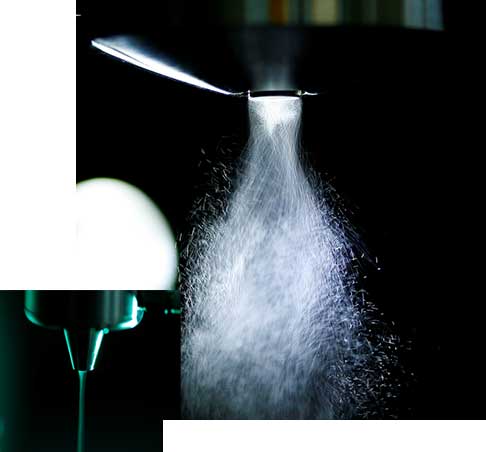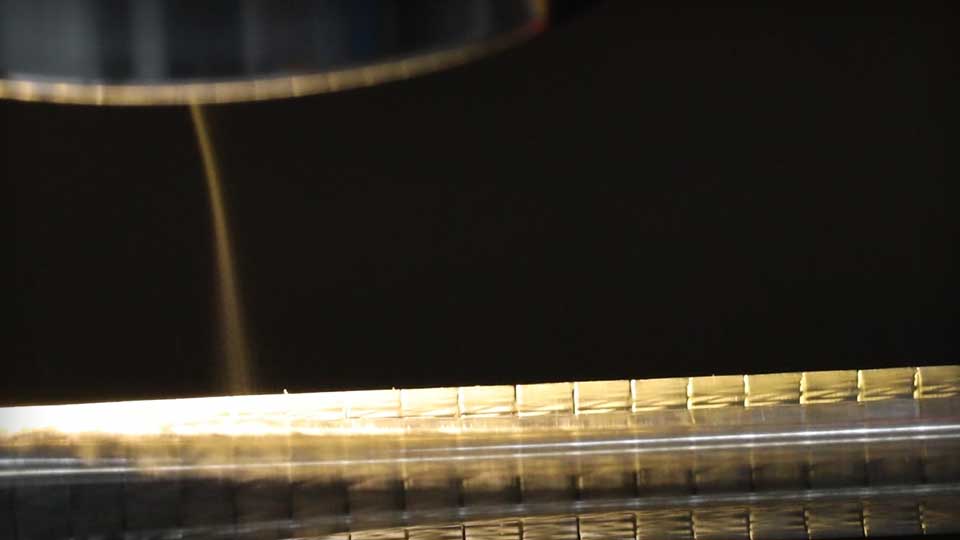Tel:
Email:
code
Ultrasonic nozzle, also known as an ultrasonic spray nozzle or ultrasonic sprayer gun, is an ultrasonic vibration atomization device based on the principle of Langevin transducer. The maximum amplitude of ultrasonic vibration is designed at the front tip of the nozzle. When the liquid is delivered from the rear of the nozzle to the front tip, it is shattered into small droplets by the high-frequency ultrasonic oscillation at the ultrasonic mist nozzle tip to form atomization. Then, the liquid mist can be sent to the substrate or specific space through a certain amount of carrier gas. Under the condition of not exceeding the limit, the liquid atomization amount is only determined by the flow rate of liquid delivery and the operation frequency of the ultrasonic spray nozzle. Contact us and get the latest ultrasonic nozzle price!
There are 8 types with different spray shaping and for different applications of ultrasonic nebulizer transducer nozzles :
WideMist
FocusMist
NanoMist
ConeMist
LineMist
Penetrator
Spray pyrolysis
Spray drying


WideMist ultrasonic nozzle and FocusMist ultrasonic nozzle are most popular model for ultrasonic spray coating application on large area and small area seperately.
In addition, for very small substrates, NanoMist or LineMist ultrasonic nozzle is also usually used.
Generally, to determine the right model you need to consider a few main parameters of ultrasonic nozzle such as spray width, flow rate, droplet size, viscosity, etc.
The ultrasonic spray nozzle is based on Langevin ultrasonic transducer. A liquid channel is applied in the Langevin ultrasonic transducer.
When the liquid is delivered to the front tip of the transducer horn where has the maximum oscillation amplitude, it is torn by ultrasonic vibration and atomized.
Using Langevin transducer and horn, the oscillation amplitude of the ultrasonic transducer is dramatically improved, so as to increase the maximum atomizable viscosity of liquid, which can reach 30-50 cps.

Ultrasonic sprayer nozzles, also known as ultrasonic mist nozzles, use high-frequency vibrations to break up a liquid into a fine mist. The nozzle consists of a piezoelectric transducer that converts electrical energy into mechanical vibrations. These vibrations are then transmitted to a metal diaphragm that creates standing waves in the liquid, causing it to atomize into tiny droplets. The size of the droplets can be adjusted by changing the frequency of the vibrations. Ultrasonic nozzles are commonly used in applications such as humidification, coating, and spraying of liquids, as they produce a fine, uniform mist that can be easily controlled.
The frequency of ultrasonic nozzle, also known as ultrasonic sprayer nozzles or ultrasonic mist nozzles, typically ranges between 1 and 3 MHz. This frequency range is in the ultrasonic range, meaning it is higher than the range of human hearing. The frequency is generated by a piezoelectric transducer which converts electrical energy into mechanical vibrations. These vibrations create standing waves in the liquid, causing it to atomize into a fine mist. The frequency of the nozzle can be adjusted to control the size of the droplets produced by the nozzle. Higher frequencies produce smaller droplets, while lower frequencies produce larger droplets.
Ultrasonic mist nozzle, is commonly used in various industrial and commercial applications where a fine, uniform mist is required. These applications include humidification, air conditioning, cooling, and coating. Ultrasonic atomizers produce a mist by using high-frequency vibrations to break up a liquid into tiny droplets. The resulting mist has a high surface area to volume ratio, allowing it to quickly evaporate or be absorbed by the surrounding environment. Additionally, ultrasonic atomizers are often preferred over traditional nozzles as they produce a finer, more uniform mist with less clogging and better control over droplet size.